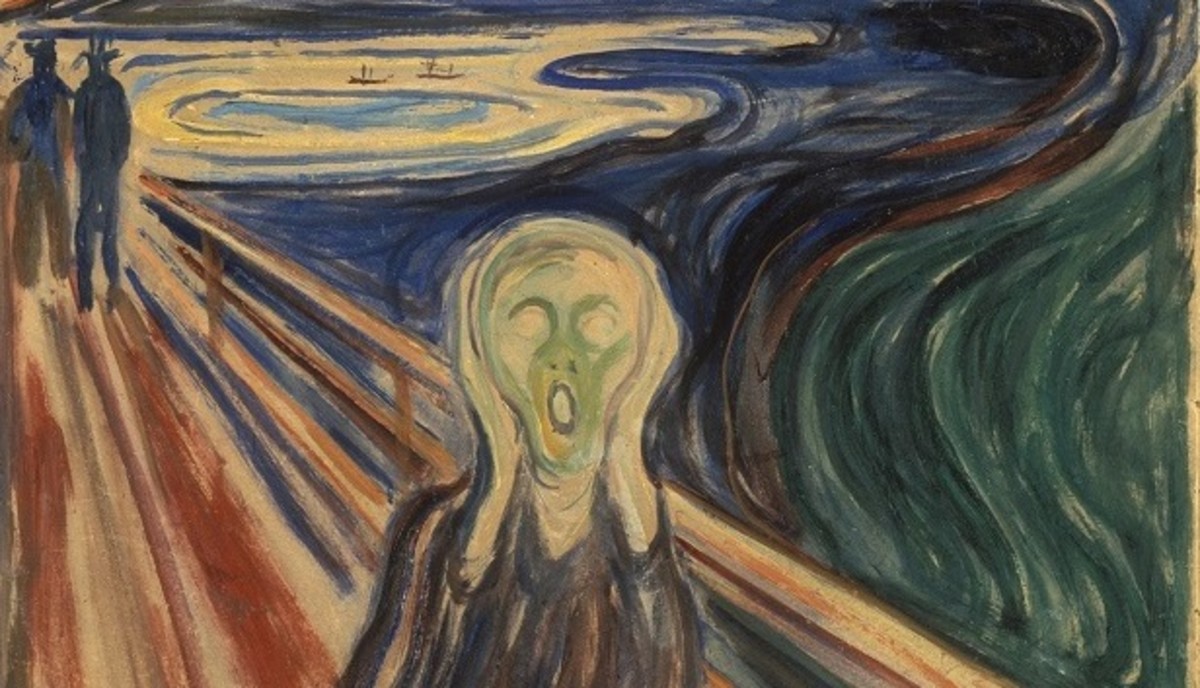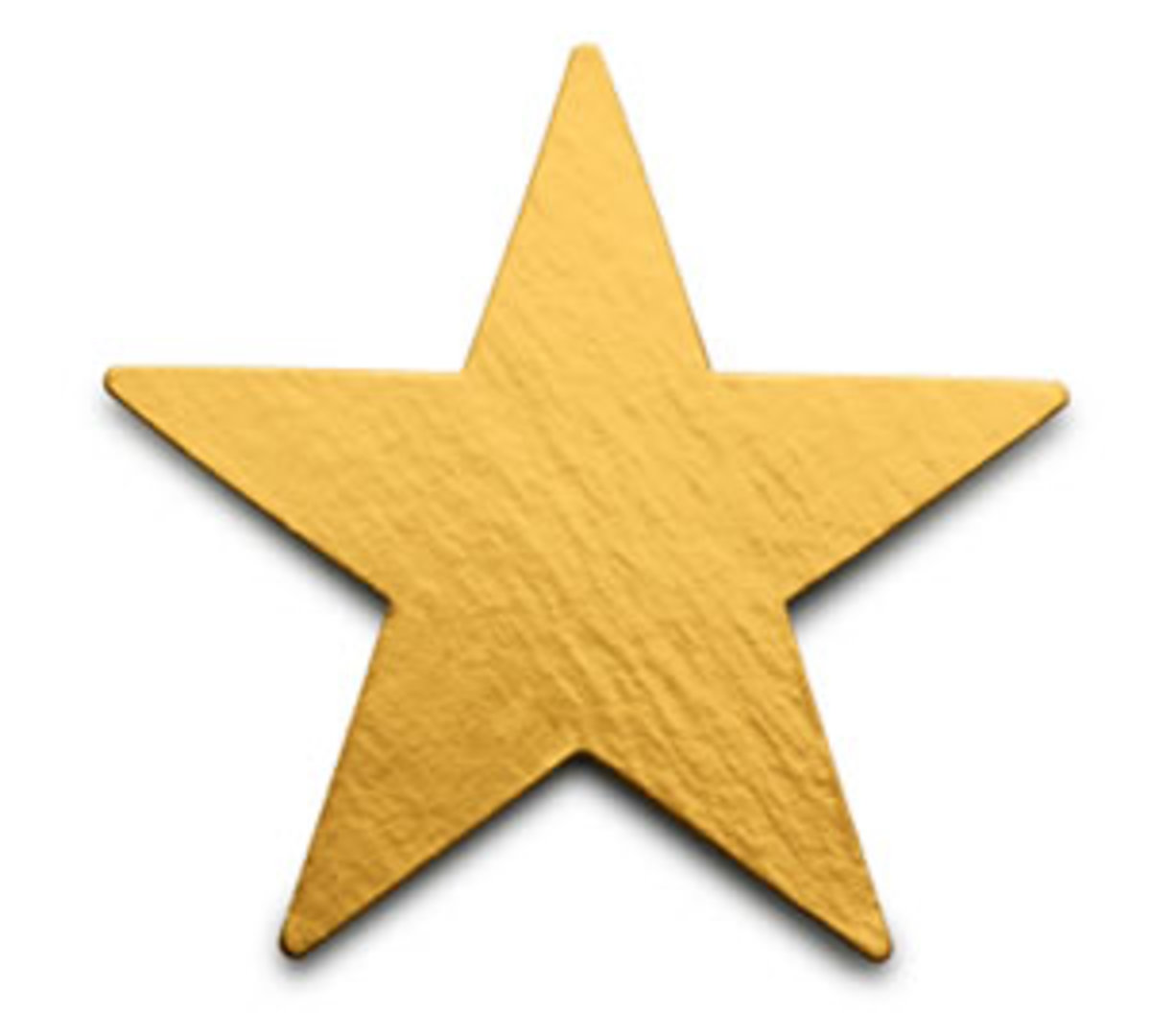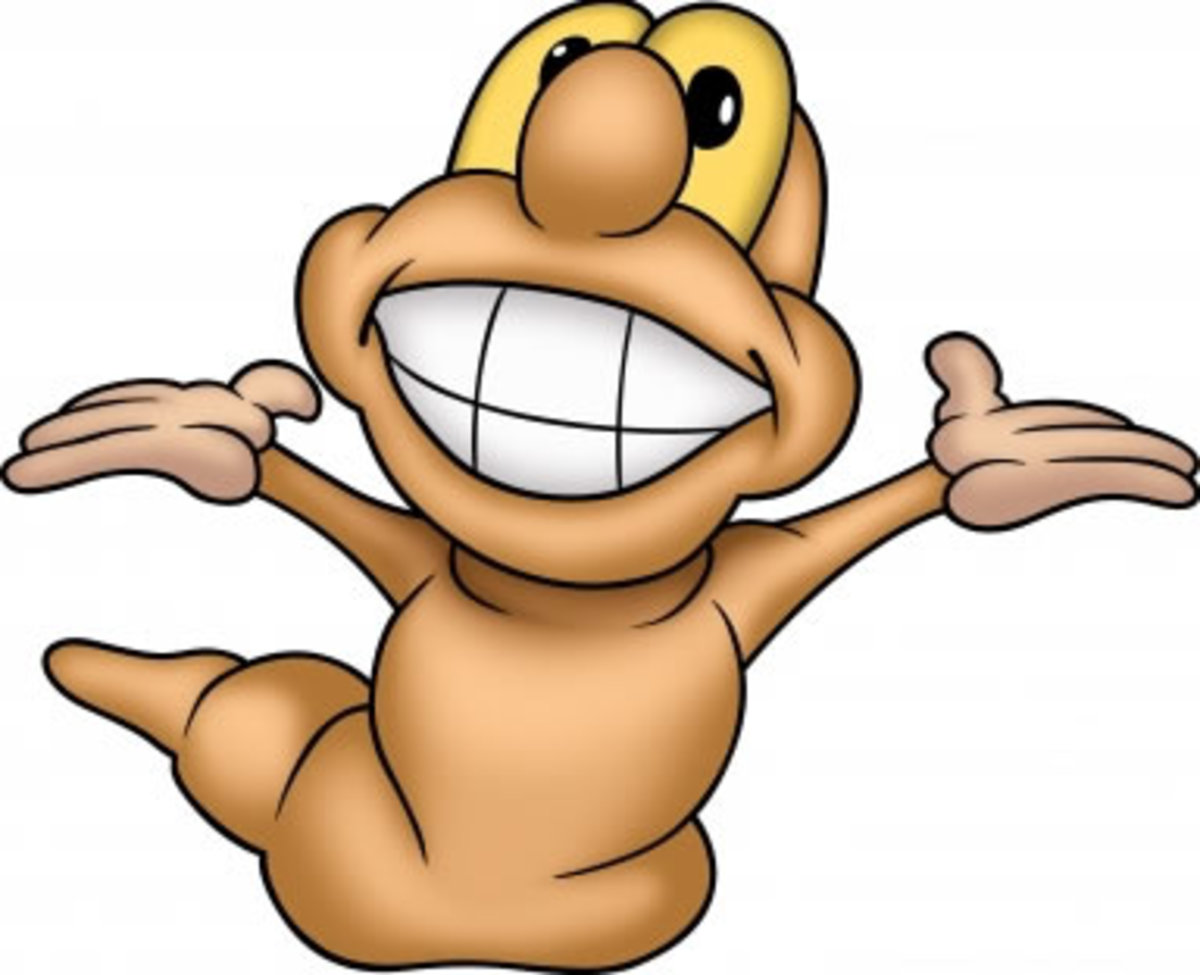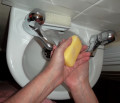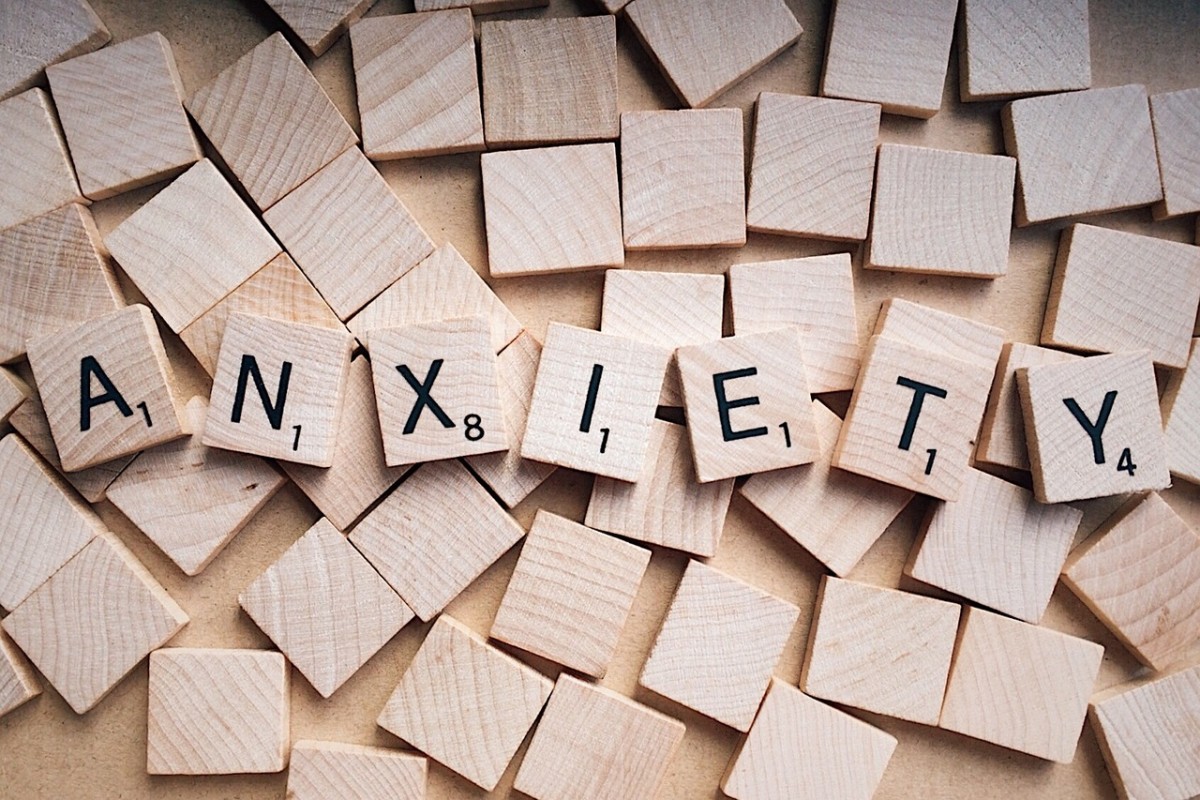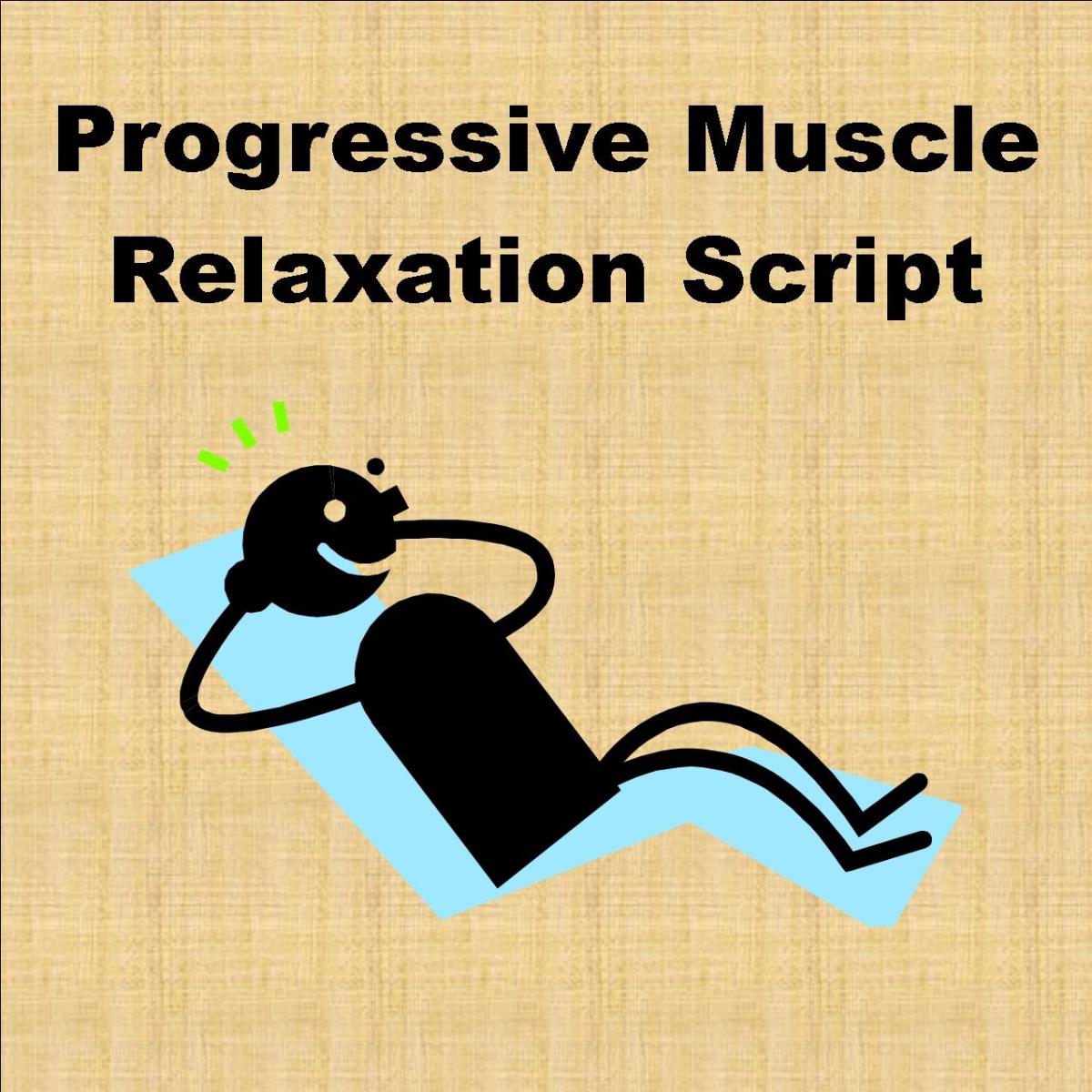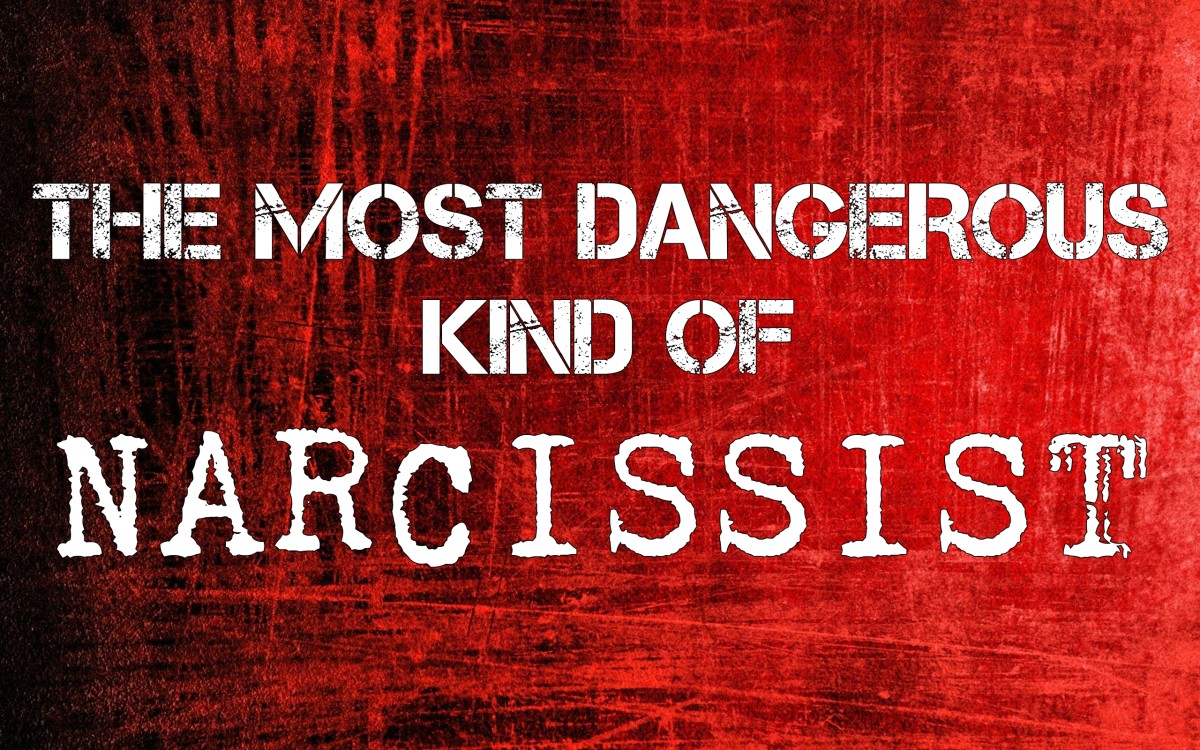About Obsessive Compulsive Disorder or OCD
Obsessive-compulsive disorder, often abbreviated as OCD, is an anxiety disorder in which the person has obsessive and intrusive thoughts that are often repeated. These thoughts often provoke an anxiety that compels the person to perform a certain action or ritual. This is the compulsive part of the disorder.
For example, a person may have an anxiety about their hands being dirty and filled with germs. This compels a person to perform excessive hand washing. The person develops a compulsion to wash their hands to the point that the hand becomes raw, red, and have open cracks. Or perhaps they are unable to touch doorknobs due to germ anxieties.
The compulsion could be a counting compulsion. The obsessive thought may be about "lucky numbers" or "unluckly numbers" -- such as about performing a certain ritual an particular number of times or at a particular time of day.
Or the compulsion may to perform everything very precisely and exactingly. Or the compulsion may be to never throw anything away and to collect and hoard items. These people are known as hoarders.
Another example may be for a person to have obsessive thoughts of having left the stove turned on. Even though the person knows that they have turned off the stove, there is a compulsion to go back home and check. If that person does not perform the compulsion of checking, an anxiety develops.
It is true that many of us often have experienced briefly this inclination to "go back and check", such as "Did I lock the door? Let me go back and check." Or perhaps we are a little bit more germ-phobic than necessary. Perhaps everyone has a bit of OCD tendency to some extent. It is just a matter of amount. As we start to notice these tendencies, try not to give in to them. Resist them even if they make you uncomfortable. OCD, like many things, is easier to overcome in its earlier stages. If you give in to these types of tendencies, it may start to occur more and more often.
The tendencies do not become a disorder until it comes to affect everyday living. People with OCD have caused strains in relationships, work, and everyday living. The well known film-maker and aviator Howard Hughes has obsessive compulsive disorder with examples noted in Wikipedia. Many people who have OCD may not have been diagnosed or may not reveal the potentially embarrassing behavior to others. Therefore it is difficult to get a good estimate and it may be more prevalent that one might expect. Perhaps as much as 3% of the population may have it.[7]
Can not just stop
A person would OCD would have continue to check the lock repeatedly. They would go back to the house maybe 10 times or more checking the lock each time even though congitively they know that the door is locked. The obsessive thought is often the thought of something bad happening if the action is not performed. It may be the thought of the house catch ingon fire if one does not go back and check. Or the obsessive thought could be some "horrible thought" that the person would "do something bad".
According to Jeffrey Schwartz MD in his book Brain Lock, if the person gives in and perform the compulsion or ritual, the obsessive-compulsive behavior will only get worst. Therefore, it is best not to give in to the obsessive compulsive tendencies. Try not to give in for 15 minutes. This is much difficult than it sounds. People who have never experienced OCD would often tell the person to "just stop". But it is never this simple. If it was, they would have stopped already. They do not understand how difficult it is to stop. Family members and friends should try not to aid or reinforce the compulsive act
The person with OCD really do not want the obsessive thoughts and really do not want the compulsion to perform the action. They actually know and understands that the compulsive act does not make sense. Nevertheless, the person can not "just stop".
What Causes Obsessive Compulsive Disorder?
This is because obsessive compulsive disorder is a physical biochemical imbalance in the brain. The nature of the obsessive though and compulsion will vary from individual to individual. However, they all stem from an underlying cause due to part of the brain not working correctly.
As described in the book Brain Lock ...
"OCD is a neuropsychiatric illness resulting from a malfunction in the circuitry of the brain." [page 47]
Deep in the center of the brain is an area known as the basal ganglia. There you will find the stratum which controls and filters thoughts and automatic movements. The stratum consists of two parts: (1) The caudate nucleus that does the filtering and automatic shifting of thoughts. And (2) the putamen that does the same for movements. It is believed that the caudate nucleus is not functioning properly in OCD.
PET scans shows overactivity of the caudate nucleus in people with OCD. They also have overactivity in the orbital cortex which is the "error-detection circuit". It is where thoughts and emotion intersect. Why is overactivity bad? That means that those parts of the brain are using a lot of glucose and is experiencing high energy use. Those parts of the brain are not as efficient. In other words, these parts have to work much harder as compared to normal people. When a behavior is automatic, the brain does not need to expend that much energy.
The orbital cortex is sending incorrect message that "something is wrong". The Cingulate gyrus is providing the feeling that something bad is going to happen. And the caudate nucleus is not shifting thoughts correctly. So that one ends up having the same thoughts repeated over and over and not letting you abandon the thought and move onto something else.
But why are these areas of the brain not functioning correctly? Some speculate that serotonin levels are imbalanced. And dopamine levels are also being investigated.
PANDAS (Pediatric Autoimmune Neuropsychiatric Disorders Associated with Streptococcal) is a form of OCD that occurs in childhood triggered by the body's abnormal reaction to an Strep infection. And hence the Strep infection needs to be treated first with medicine.
Nutritional Deficiencies Can Be at the Root of OCD
There have been some anecdotal evidence that nutritional deficiencies can be a contributing factor in OCD.
Chris Masterjohn mentioned in Dr. Lo Radio podcast that he experienced some OCD-type symptoms and anxiety disorders when he was a vegetarian. After he started eating animal products, his symptoms disappeared.
The book Primal Body, Primal Mind also mentions nervous system issues due to lack of animal products ...
"Far and away, the people with the most damaged and intractably dys-regulated brains and nervous systems I have seen or dealt with in my practice have all been vegans, with strict vegetarians a close second - hands down." [page 224]
The nutrients that might be deficient that may contribute to OCD are B vitamins, omega-3 fats, and possibly others. Vitamin B12 and DHA forms of omega-3 are virtually non-existent in plant foods as mentioned in another article about the case for animal products.
B vitamins are brain vitamins and DHA omega-3 fatty acids are among the primary building blocks of the brain.
The scientific article Obsessive Compulsive Disorder as Early Manifestation of B12 Deficiency reports of a case where an B12 deficiency manifest itself as OCD. B12 is a cofactor in synthesis of serotonin and dopamine neurotransmitters.
Other B vitamins can also be of benefit for OCD. Article on LiveStrong.com writes that vitamin B3 (niacin) increases the serotonin precursor tryptophan. B6 also aids in serotonin and norepinephrine production, and can have a calming effect.
Dr. Weil mentions in an article that fish oil supplements rich in omega-3 fatty acids may be of help for OCD.
Finding Help for Obsessive Compulsive Disorder
The good news is that the brain chemistry can be changed in part by behavioral modification. The book Brain Lock showed PET scan images of the brain before and after Dr. Schwartz's drug-free treatment.
To defeat the irrational impulses of obsessive compulsive disorder, Dr. Schwartz uses a four-step program involving Relabeling, Reatributing, Refocusing, and Revaluing. It involves mindful awareness of an obsessive compulsive thought coming on. It involves harnessing the power of viewing oneself from the perspective of an "Impartial Spectator". It involves a willful effort to refocus one's actions and thoughts onto something else more constructive than that of the obsessive compulsive thought.
Taking the analogy of the caudate nucleus as being an automatic transmission that is supposed to shift your thoughts automatically. It is kind-of stuck. So now you have to use willful effort to manually shift your thoughts instead.
If a person suspects that they have OCD, they should find a qualified professional. Without proper treatment and/or medication, the condition can worsen. There is the International OCD Foundation. Look for therapist knowledgeable in Cognitive Behavioral Therapy and Exposure Therapy and who specialize in OCD. Cognitive Behavioral Therapy is a therapy that strives to "reprogram" the brain by cognitive and behavioral modifications. The earlier a person start treatment, the more effective it is to bring the OCD under control. While in many cases, the obsessive thoughts will continue to occur, the person will learn how to manage it and not have to act on it. They will learn to realize that it is their brain that is giving false messages and can devalue or ignore those messages.
Also, there are many who can be helped with appropriate medication in conjunction with behavioral therapy.
Link between obsessive compulsive disorder and Tourette Syndrome
Although Obsessive Compulsive Disorder and Tourette syndrome are different disorders, there may be a relation between obsessive compulsive disorder and Tourette syndrome. Tourette syndrome is characterized by uncontrollable and repeated tics or vocal sounds. Tics are quick involuntary jerks or motions of the face, arms, legs, shoulders, eye blinking, grunts, sniffs, cough, and so on.
In both OCD and Tourette's, there appears to be a genetic component and both can be exacerbated by stress. 20% of people with OCD also have tics.[2] And some people with Tourette's also have OCD.
In both OCD and Tourette's syndrome, it is believed that there is dysfunction in the basal ganglia. In OCD, it is the caudate nucleus that in dysfunction. In Tourette's, it is the putamen that may be in dysfunction.
Note:
Article was written December 2011 and is opinion at the time of writing. Author is not a medical professional.
References:
- [1] Brain Lock by Jeffrey Schwartz
- [2] Obsessive Compulsive Disorder - PubMed Health
- [3] Obsessive Compulsive Disorder - Wikipedia
- [4] Gilles de la Tourette syndrome - PubMed Health
- [5] Basal Ganglia - Wikipedia
- [6] The Basal Ganglia
- [7] Obsessive Compulsive Disorder for Dummies -- book



